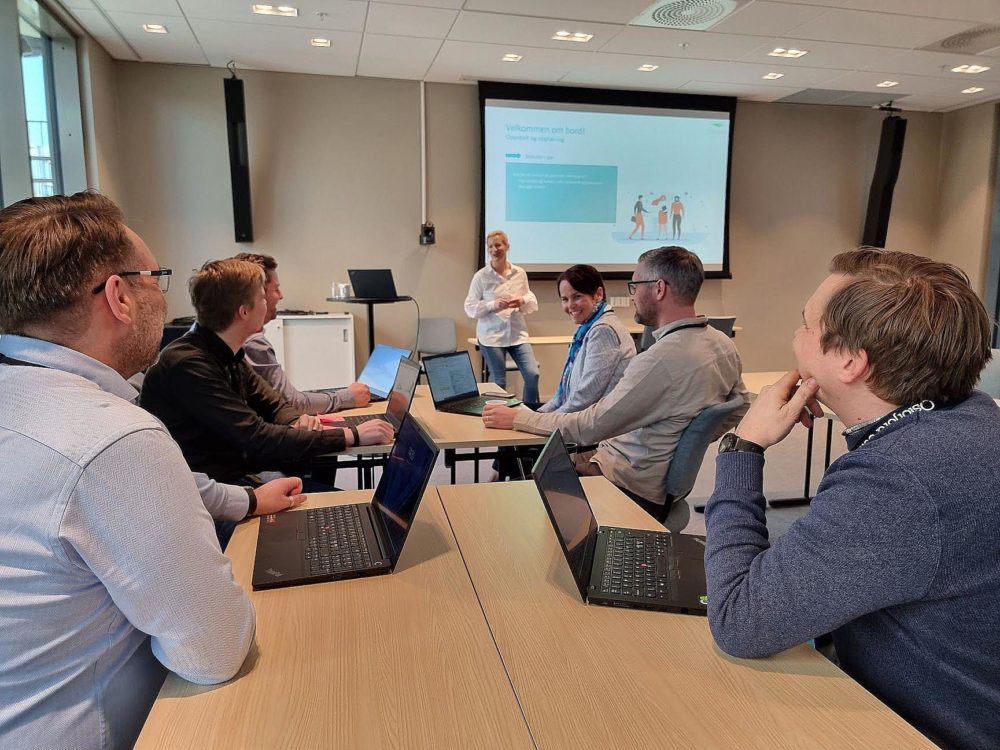Professor: – Businesses can lose a lot on excessive use of home office
Increased use of home offices and digital remote solutions have come to stay, and a lot of space has been devoted to the ups and downs of the new work culture.
Many companies are now undergoing a change on several levels. In particular, it is discussed how social life in the workplace should be organized. How do we return to the feeling of collegial community when many of us still want to see less of each other than we did before the pandemic?
As important as family life
Rudi Kirkhaug is a professor of leadership and organization at the Department of Social Sciences at the University of Tromsø. He points out that people in both large and small workplaces have a basic need to feel a social closeness to each other:
-We apply for working life to have a social life outside the family, and for many this is as important as family life, says Kirkhaug.
Therefore, a company’s investment in the social work environment is absolutely crucial, the professor explains. Collegial socialization can strengthen the company’s competitiveness, because this helps to safeguard the company’s unique social capital.
Larger companies in particular depend on gathering all employees on a regular basis so as not to lose valuable collegial cultural building.
Pandemic new work structures
It is now over two years since large parts of the Norwegian workforce were thrown into home office life. For some, such a job is perfect. A NHO survey from 2021 shows, among other things, that about half of the companies still want to use home offices – even after the end of the pandemic.
This hybrid working day has also made the World Health Organization (WHO) and the International Labor Organization (ILO) want common international guidelines for home offices.
Their report on home office indicates that the use may have different effects on health, safety and well-being. Among the positive effects are the possibility of a better balance between work and leisure, more flexible working hours and increased productivity. But without proper planning and follow-up, the negative consequences can be serious. Social isolation, burnout and physical ailments are mentioned as possible negative effects.
Home office is not just about efficiency and productivity. The individual’s well-being and mental health are just as important. Humans are social beings that require fellowship, socialization and regular contact.

Preservation of social capital
Professor Rudi Kirkhaug explains that there is also a professional justification for people having a need to meet. If you participate in a good work environment with colleagues you trust, this will help reduce uncertainty in everyday work.
-Being able to convey uncertainty about something you are not completely sure of is an important part of learning and further development and uncertainty is often conveyed through body language. If you are to communicate from a distance, it must be done quickly in writing or over the phone, and then it often becomes a much more formal dimension than you want, Kirkhaug explains.
He further says that both employer and employee positions can be weakened if the use of home office is exaggerated, rather than the traditional, office-based working life structure. He explains that this can lead to loss of social capital.
-A company has two types of capital, Kirkhaugog states and explains:
-Human capital is the trade certificate or education the employees have as their official background. Social capital is what the organization receives when employees participate in informal exchanges of experience and build up a type of competence.
Physical collections over time can pay off
This means that it is worthwhile for companies to adapt to take care of the social aspect of the workplace.
Large, unifying events with employees can create fertile ground for valuable social learning. This in turn facilitates job satisfaction, productivity and belonging. Physical gatherings of employees over a longer period can, in many cases, be a good way to remedy the fact that we have seen less of each other in everyday life in recent years.
-For a company to be able to operate in a market, it is crucial how to connect people with different education. This unique social capital and competitiveness is what can give a company an advantage among other similar companies, Kirkhaug states.
Simply summarized:
– Home office has become part of everyday work life, so it becomes important for companies to adapt in order to be able to take care of the social work environment.
-Excessive use of home office can result in the company losing social capital and competitiveness.
-In the long run, companies can benefit from investing in a long-term stay for employees in suitable facilities, as productivity and job satisfaction go hand in hand.
-Physical gathering of employees over a long period of time has clear psychological, social and practical benefits.
-Larger companies in particular are at risk of losing valuable collegial socialization due to increased use of home offices and digital remote solutions.


